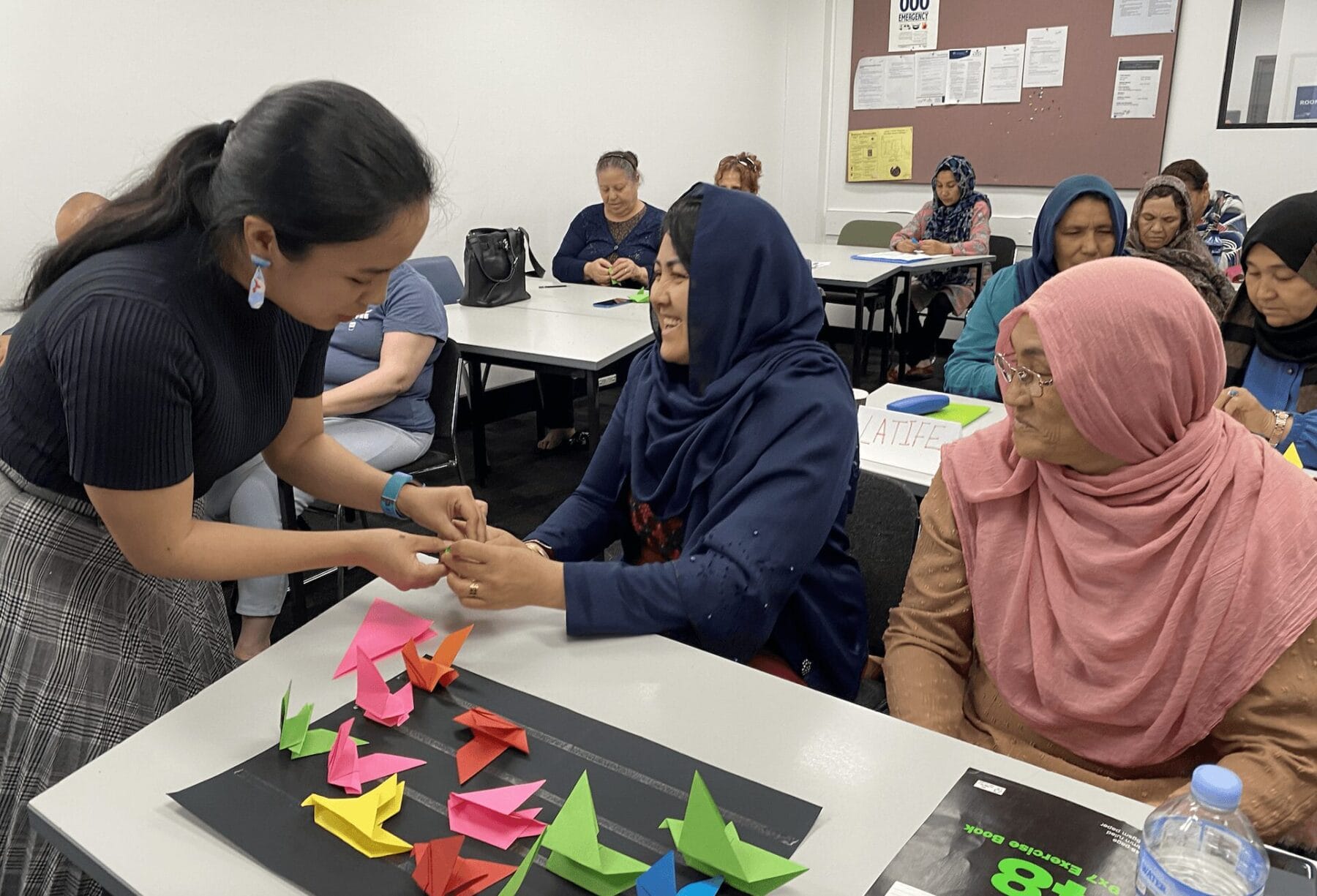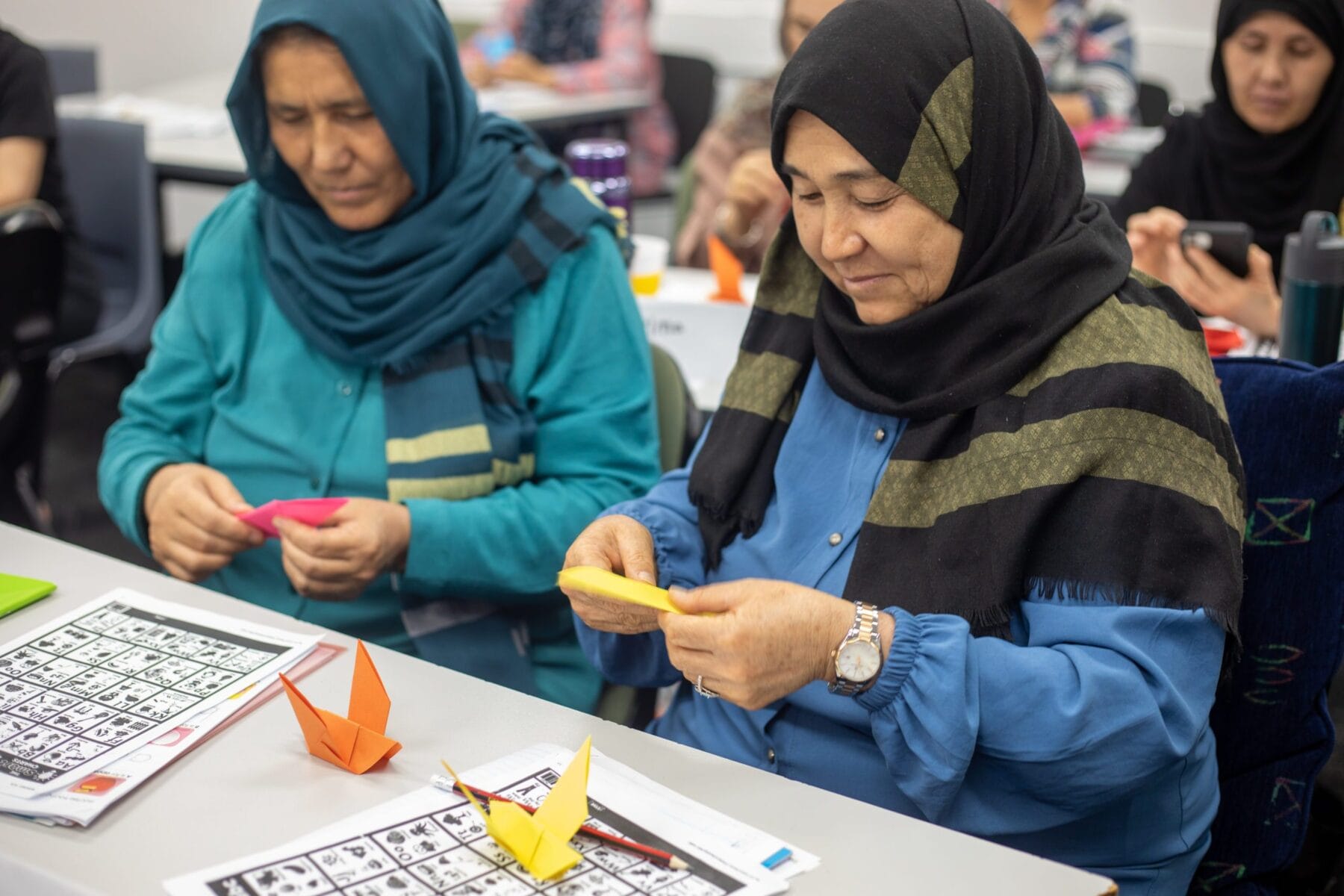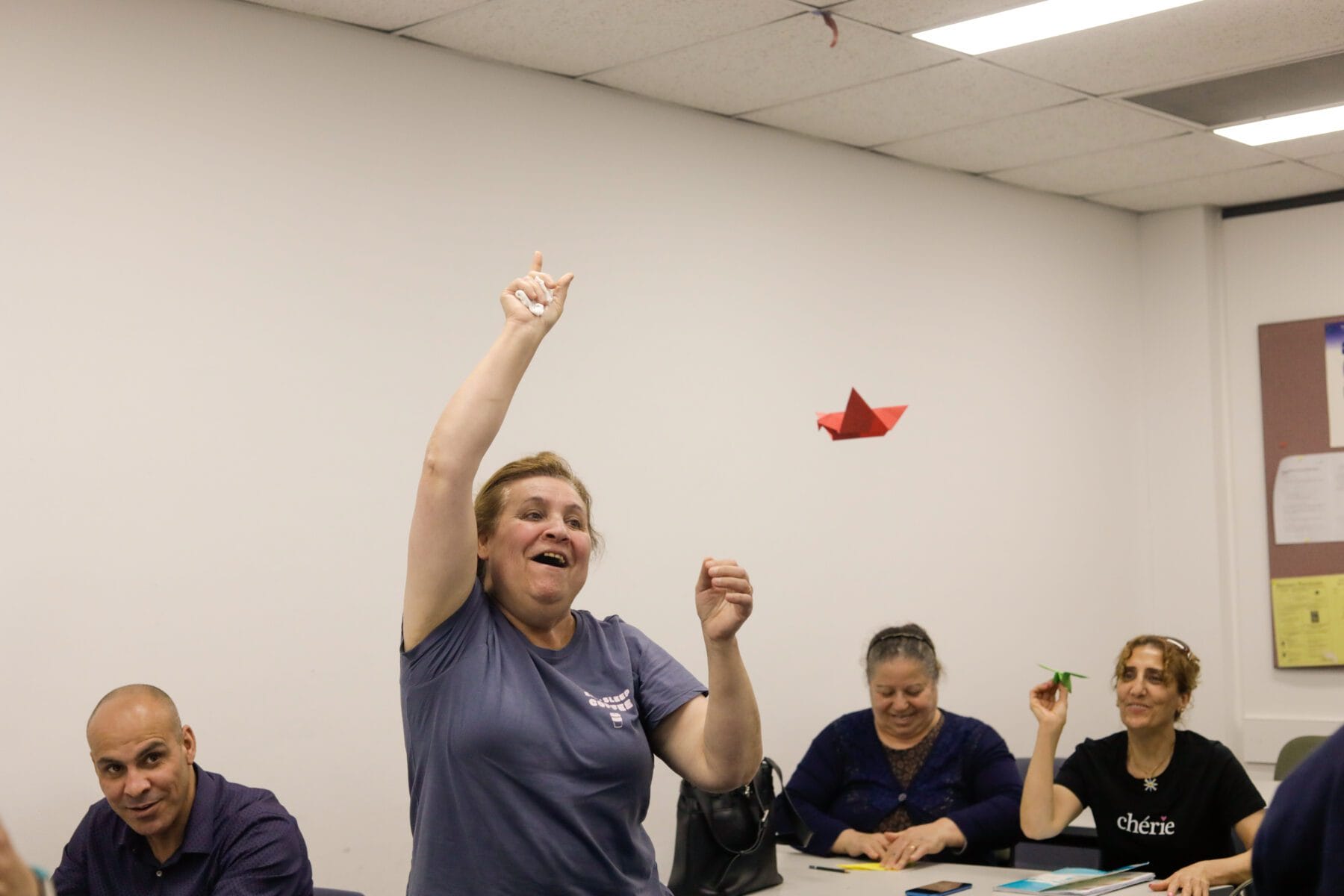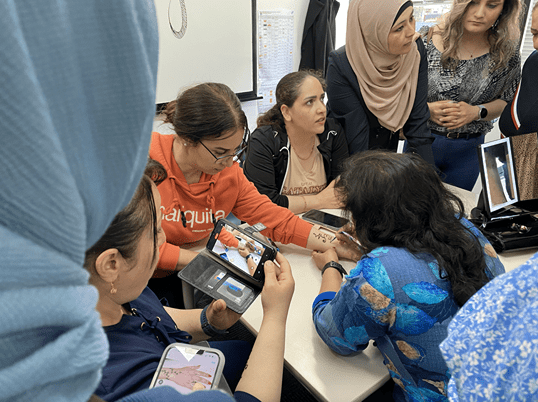Expo provides support and breaks stigma of mental health
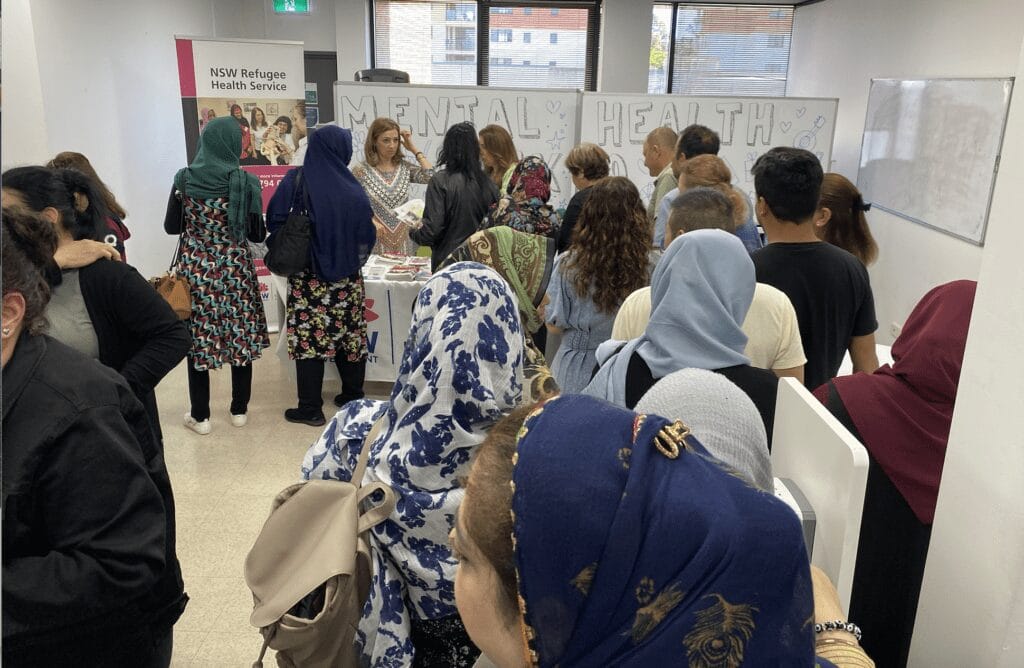
Hundreds of students from migrant and refugee backgrounds attended the Mental Health Expo at Navitas Skilled Futures Fairfield last month to receive information and support, make new connections, and find relief in fun activities designed to improve overall wellbeing.
The day – part of National Mental Health Month – was aimed at helping students whose wellbeing suffered during the pandemic, as well as those who recently arrived from war zones and repressive regimes. It also aimed at breaking down the stigma of mental health in CALD communities.
A number of organisations from government, refugee and migrant support services and the community participated in the event, with information stalls and workshops following the ‘5 Ways to Wellbeing’ framework: Connect; Be Active; Keep Learning; Be Aware; and Help Others.

Fairfield College Academic Team Leader, Chen Zhao, said the successful event, which had not been able to run for the past two years, provided an opportunity for clients and staff to re-connect with these relevant services and organisations in the phase of post-COVID recovery.
“It also enabled clients to be engaged in the activity of their choice to learn more about mental health, to be more aware of its impact and to develop basic skills for self-care,” Chen said.

Ashraf Sedrak from STARTTS (NSW Service for the Treatment and Rehabilitation of Torture and Trauma Services) said while his organisation offered counselling to help torture and trauma survivors, the day enabled his staff to talk to students about their holistic range of programs and services that help them and their families to heal and function well in their daily lives.
“The stigma is a challenge for people that come from the Middle East because we think if you need a mental health doctor that means you are crazy; it doesn’t mean you will be better,” Ashraf said. “People say, ‘I don’t need this. I need a house, I need to take my kids to school, I need the other practical stuff that anyone would need’. And we are saying, ‘Yes, we have some other stuff and we have programs that will support you’.”
Ashraf said the expo helped to break this stigma of mental health while connecting people directly with the type of support they needed: “I think it’s a two-way gain. STARTTS gain the new arrivals and the new arrivals gain the services they may not know about.”

Natalie Mastrogiovanni, a provisional psychologist and researcher at RTRP (Refugee Trauma Recovery Program), agreed the event created favourable outcomes.
“It’s really normalised mental health for a lot of students where it has been otherwise quite stigmatised, so I think it has been quite a positive reaction … in terms of bettering their mental health,” she said.
Natalie said the RTRP sessions talked about stress – how to notice it and what to do about it.
“[These students] might have experienced some terrible events in their home country, as well as through the process of fleeing to seek asylum and then again once they arrive in Australia, all the stressful events that go along with adapting to a new country, like learning a new language, finding a job and that sort of thing. Today we got to talk about how to recognise what stress looks like in our body, in our thoughts, emotion and behaviour, and once we notice those signs of stress what we can do to cope.”
Creative, active and relaxing workshops at the event also helped to alleviate students’ stress, with continuous sessions of origami making, henna tattooing, eyebrow shaping, and exercise classes.
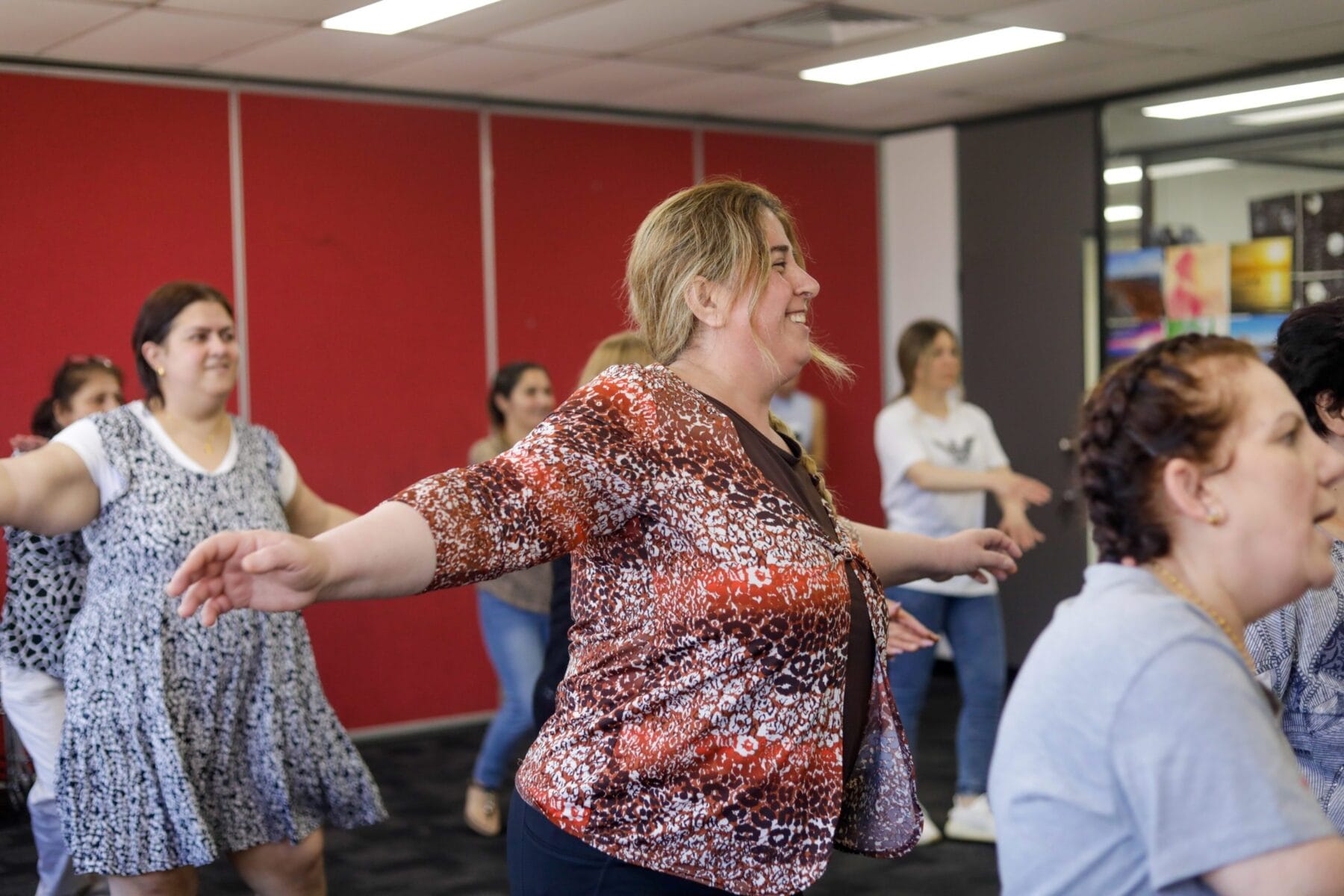
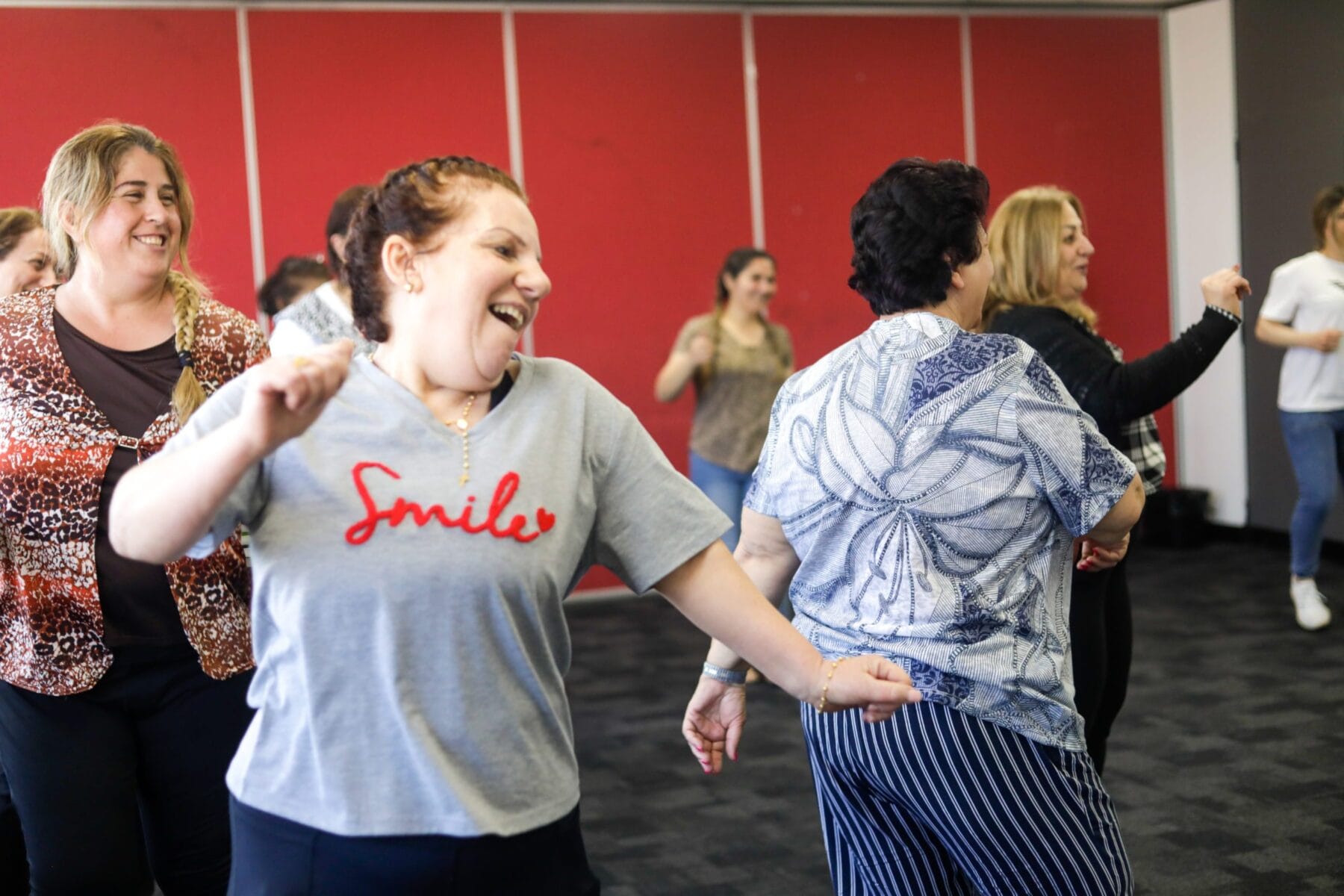
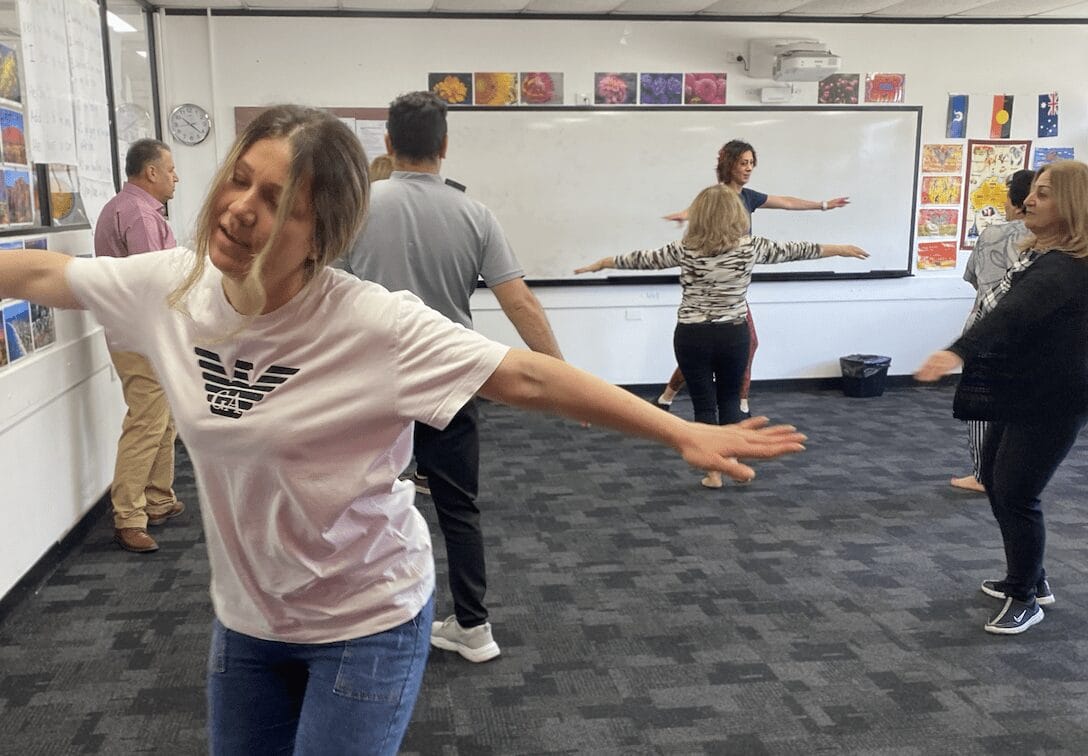
‘Moove and Groove’ instructor, NSF teacher Taraneh Sadeghian, said body movement helped boost students’ mood, aided concentration and made them happier. Students kicked off their shoes and danced, twirled and stretched in the air-conditioned room to high energy music, singing, laughing and smiling.
“Even for half an hour this gets them away from the hustle and bustle of their life, their busy life and all the stresses they are in,” Tara said. “From smiles on their faces, they are so happy. It doesn’t matter if you are living in good condition or poor condition, regardless of where you are at in your life, we all get stressed … we absolutely need to move and to look after our mental health.”
Chen said Navitas Skilled Futures was very grateful to everyone who made the Mental Health Expo possible, presenting certificates of appreciation to those who ran sessions and stalls, including South West Sydney Local Health District, Refugee Health Services, Department of Human Services, the NSW Energy and Water Ombudsman, Sydney Water, and Disability Services Department at CORE Community Services, as well as those mentioned above.
